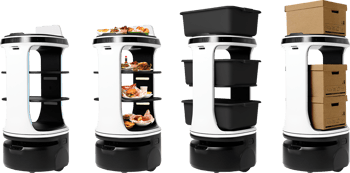Staff retention is a familiar challenge for restaurant operators. The food services industry struggles with a markedly high turnover rate relative to the broader private sector. Some estimates place the average churn rate for the restaurant industry at a staggering 75%.
That’s why many operators are rethinking their restaurant staff retention strategies. As the labor landscape shifts and employee expectations change, forward-thinking owners and operators are developing innovative employee retention programs for restaurants.
An Innovative Solution to a Familiar Problem
One such employer–the Rocket Farm Restaurants group–recently implemented its own innovative solution to the familiar challenge of restaurant employee retention. Rocket Farm created its own “university” for its employees, and the result is a dramatic improvement in both its recruitment and retention efforts.
We spoke to Rocket COO Toby Franklin to learn more about this unique program. Franklin’s insights apply broadly to employee retention programs for restaurants of all shapes and sizes. Below, we offer a few helpful restaurant staff retention strategies based on these insights.
6 Proven Restaurant Staff Retention Strategies
The Rocket Farm Restaurants group has more than 20 locations throughout the Atlanta, Houston, Nashville, and Charlotte metropolitan areas. Like most employers, Rocket Farm struggled with both recruitment and retention during the pandemic.
But as the pandemic subsided, the restaurant group took a unique approach to improving staff retention. In the time since instituting its internal university program, the restaurant group’s staff retention has come to nearly double the regional average, said Franklin.
Here are some of the restaurant staff retention strategies that helped deliver these stellar results for Rocket Farm.
1. Create opportunities for advancement
“We really saw a need to legitimize restaurants as a respectable career path,” said Franklin.
To address this need, Rocket Farm created its own “university” to help staff members learn, grow, and prepare for eventual leadership roles. Today, the university offers 22 classes covering a gamut of subjects including leadership, human resources, finance, accounting, marketing, and more.
Franklin noted that “each class is taught once a month and offered both in-person and virtually. Classes are free and available for all staff.”
2. Provide meaningful support
In addition to providing employees with access to this unique learning experience, Rocket Farm offers enrollees the same level of personal support that you might expect from a university program.
“We have a director, and her job is literally to shepherd people through this program,” said Franklin. “She connects with every person that comes on board with us, discovers what their passions are, whether they want to grow with us, and then puts them on a development plan.”
This is a great philosophy for all manner of employee retention programs for restaurants. Create an environment where your employees have access to guidance, mentorship, and structure.
3. Recruit from within
It’s not enough to simply educate staff members. You must provide them with outlets to actually exercise this education. That means creating pathways to leadership within your organization.
In fact, Franklin credits Rocket Farm’s university program for helping to nurture both its current crop of company leaders and educators. According to Franklin, Rocket’s human resources, accounting, and sales and marketing departments are all led and staffed by employees who have completed the university program.
Moreover, those same department heads now also serve as instructors for the university. “We have 20 instructors, and they’re also running the different departments,” said Franklin. “Teaching is part of the job.”
4. Personalize career development opportunities
In the true spirit of a university, Rocket Farm’s educational program includes a diverse set of course offerings. This makes it possible for enrollees to choose the learning path that best suits their ambitions.
Accordingly, said Franklin, “The school has three major legs – culinary, management, and beverage. We started in culinary, and I took inspiration from Auguste Escoffier’s brigade system, creating a curriculum designed to give people the knowledge to progress from dishwasher all the way up to executive chef.”
Rocket’s program also helps each employee find the right personal balance between learning and meeting workplace responsibilities. Franklin explains that “All classes are free and fully optional. However, some classes are required in order to proceed to the next level. If we require a class, we compensate people, so they can do it within their working hours.”
5. Invest in your employees
Rocket Farm’s retention program demonstrates the employer’s willingness to make a long term commitment to its personnel. This is highlighted by its unique employee retirement plan.
“Fundamentally,” said Franklin, “it goes back to the same premise of getting people to think about our industry as a legitimate career path – one where they can retire with you.”
In addition to offering employees the promise of future security, the structure of Rocket's retirement plan sends a strong and positive message to employees. Their contributions and ongoing commitment to the company are valued.
As Franklin explained, “our investors have allowed us to divert a significant chunk of our profit towards this retirement program, and it works similarly to a profit-share program. Unlike your typical 401(k), in our system, you don’t have to contribute anything from your income. It’s supplemental to wages and bonuses.”
This kind of plan gives employees a chance to think about their work in the restaurant group as a true long-term career path.
6. Scale your employee retention program over time
While the generous initiatives outlined above have certainly been effective for Rocket Farm, Franklin warns that restaurant staff retention strategies should be commensurate with the scale of your operation and your availability of resources. It is extremely important to invest in your employees.
However, Franklin asserted that it is just as important “to have the bandwidth and ability to invest. When you’re a restaurant just starting out, it can be cost-prohibitive. So you have to build it over time and hopefully reinvest in your people over time.”
Ultimately though, said Franklin, an investment in your employment retention program is a smart financial move, especially relative to the high cost of employee churn. “The cost of replacing a skilled employee is north of $1,200,” said Franklin. “If we can redirect a portion of that into investing in our people to encourage them to stay, grow, and learn with us, then that is money extremely well spent.”
Recruitment, Retention, and the Cost of Turnover
Of course, all of the very best restaurant staff retention strategies begin with effective recruitment and hiring. So how can you find quality candidates and improve your hiring outcomes? Start by taking a look at our comprehensive directory of industry leading Staffing and HR providers.
Additional reporting by Grace Dickinson.





